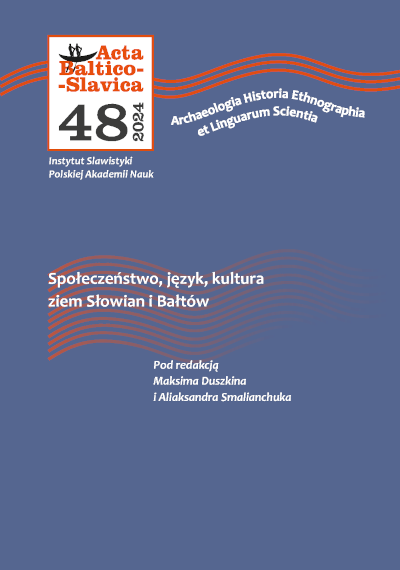Socioeconomic Dimensions of German Language Proficiency
Among Descendants of the Pre-War Population of Masuria:
Narratives from Field Research
Socioeconomic Dimensions of German Language Proficiency
Among Descendants of the Pre-War Population of Masuria:
Narratives from Field Research
Author(s): Piotr SzatkowskiSubject(s): Sociolinguistics, Ethnic Minorities Studies
Published by: Instytut Slawistyki Polskiej Akademii Nauk
Keywords: Masurians; German minority in Poland; language practices and biogra- phies; bilingualism;
Summary/Abstract: This paper examines the ways of using the German language by descendants of pre--war inhabitants of Masuria. A series of semi-structured and unstructured interviews(over 50, 48 of which were transcribed) conducted during field research throughoutMasuria showed that the higher proficiency in German, or at least a less negativeattitude towards German compared to the general population of the region, resultedin better socioeconomic chances after the collapse of communism in Poland. Manydescendants of pre-war Masurians have used the knowledge of German in education,business, teaching, translation, and NGOs, giving them better chances to adapt to thenew, capitalist economy. It was particularly important in the 1990s and 2000s, whenMasuria suffered high unemployment rates. The field research was conducted usingmultiple snowball sampling in Lutheran parishes, German minority organisationsand regional NGOs, and local communities.
Journal: Acta Baltico Slavica
- Issue Year: 2024
- Issue No: 48
- Page Range: 1-22
- Page Count: 22
- Language: English

